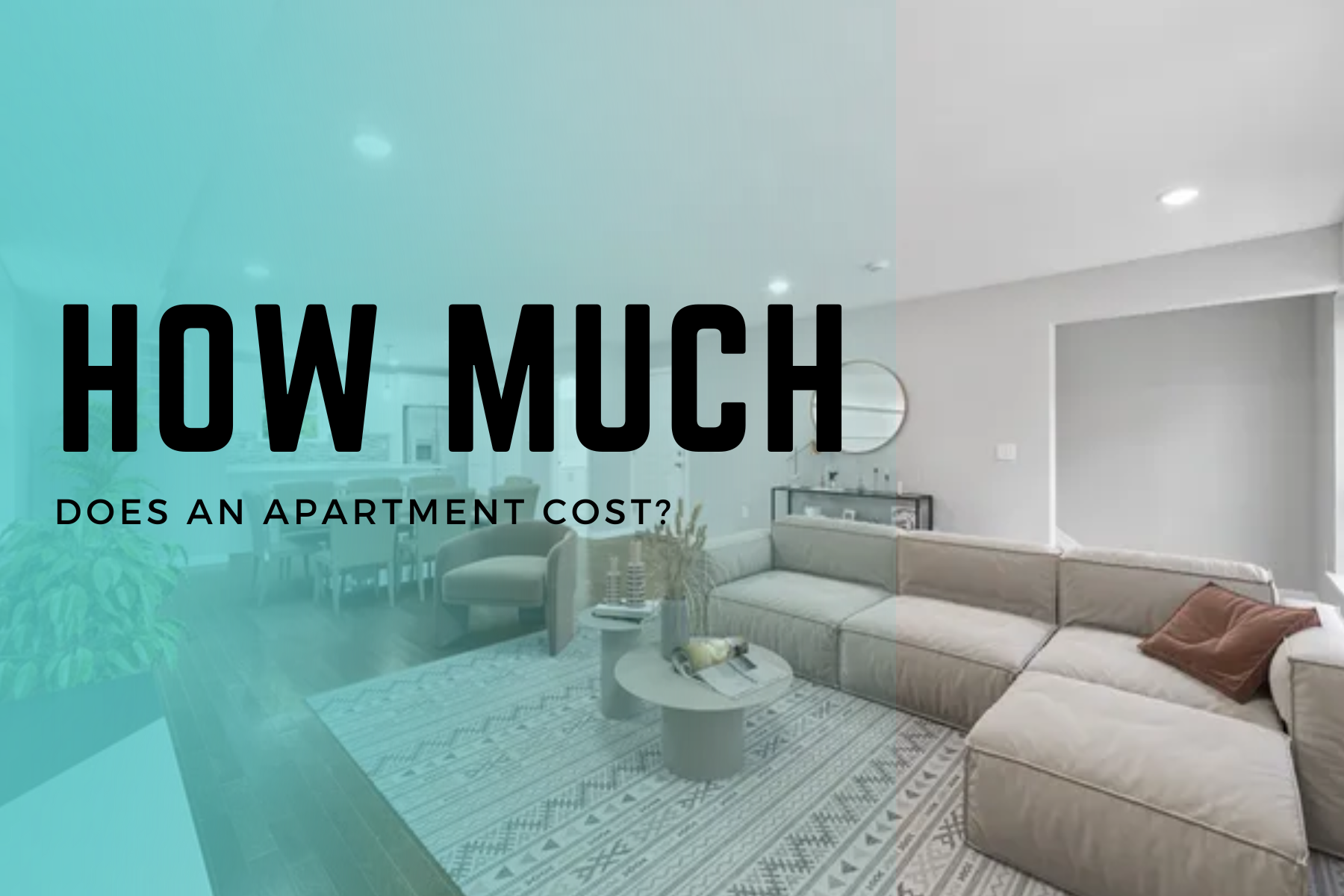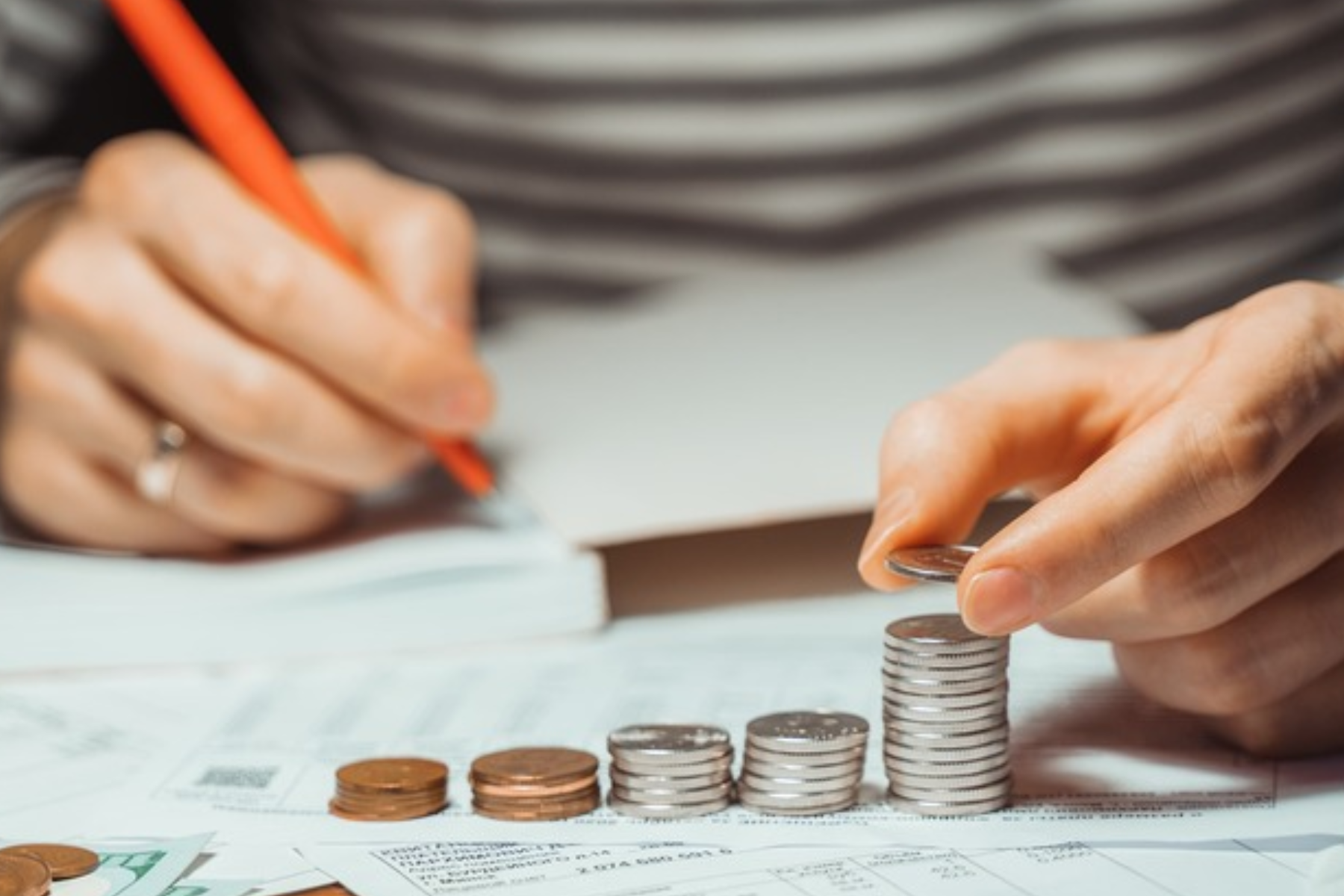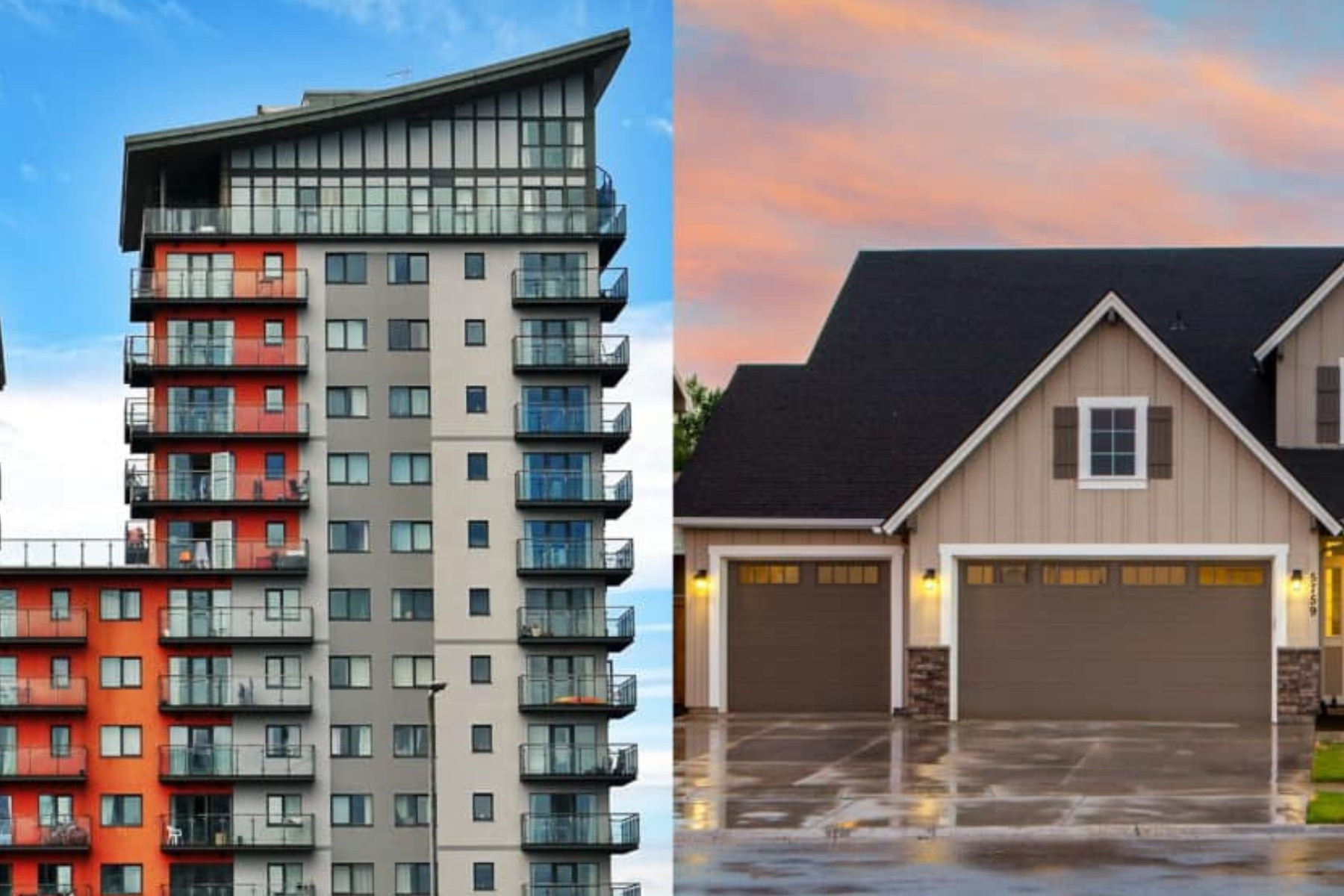15 Useful Tips On How To Save Money For An Apartment
Learn the most effective methods on how to save money for an apartment. This detailed guide has suggestions and information to find your perfect place.
Author:Frazer PughReviewer:Emmanuella SheaSep 25, 20235.1K Shares192.5K Views

Welcome to our comprehensive guide on how to save money for an apartment. Finding the right place to live is an exciting step, but it can also mean big financial commitments.
It can be hard to save enough money for an apartment, but if you make a plan and stick to it, you can make your dream of having your own place come true.
In this article, we'll show you a detailed plan for how to save money. We'll talk about everything from making a budget to coming up with new ways to save more.
If you want to rent an apartment for the first time or want to move up to a better one, these tips will help you.
How Much Does An Apartment Cost?
The cost of an apartment varies significantly, primarily determined by factors such as location, size, amenities, and the prevailing housing market conditions.
Location plays a pivotal role, with apartments in bustling urban centers or sought-after neighborhoods often commanding higher prices due to the demand for convenient city living.
Conversely, apartments in suburban or rural areas tend to be more affordable. The size of the apartment, measured in square footage and the number of bedrooms and bathrooms, also directly influences the cost.
Apartments offering amenities like fitness centers, swimming pools, or in-unit laundry may have higher rents. The condition and age of the apartment building can impact costs, with newer units often having higher rent but offering modern conveniences.
Market conditions in a particular area can cause fluctuations in apartment prices, with competitive markets having higher rates. Additionally, tenants should consider expenses beyond rent, such as utilities, parking fees, or pet-related costs.
According to a source, some financial experts say that you shouldn't spend more than 30% of your gross income on living costs, while others say that you shouldn't spend more than 25%. To find the most you should pay for rent, multiply your gross monthly income by 30%.
Setting Your Financial Goals
Before embarking on your journey to save money for an apartment, it's crucial to establish clear financial goals. These goals will serve as your roadmap, guiding you toward successful savings. Here's how to get started:
Define Your Apartment Requirements
To get started, make a list of the precise apartment requirements and amenities you're looking for. Think of things like the location, the size, the facilities, and how close you are to your place of employment or other vital services. Using this information, you will be able to calculate an estimate of the monthly rent for the apartment of your dreams.
Calculate Your Total Expenses
Next, compile a list of all of your recurring monthly costs such as your mortgage or rent payment, utilities, food, groceries, transportation, insurance, and any outstanding bills. Ensure that your budget will cover all of your financial responsibilities by meticulously identifying all of those obligations.
Create A Realistic Timeline
Make a decision regarding the date that you would like to move into your apartment. Having a distinct timeframe in front of you will provide you with a sense of urgency as well as the incentive to regularly save money, regardless of whether it's six months or a year from now.
Establish Savings Milestones
Divide the overall aim of your savings into a number of more realistic subgoals. If your goal is to save $12,000 in one year, for instance, you should attempt to save $1,000 every month toward that goal. Keeping yourself motivated and on track by achieving these more manageable goals will help you.
Determine Your Budget
Calculate Your Monthly Income And Expenses
To successfully save money for your apartment, you need a comprehensive understanding of your financial situation. Start by calculating both your monthly income and expenses:
- Income- Gather all sources of income, including your salary, any freelance work, part-time jobs, and any other regular payments. Ensure that you are considering your net income, which is the money you receive after taxes and deductions.
- Expenses- Compile a detailed list of your monthly expenses. This should encompass all your financial obligations, such as rent or mortgage payments, utilities, insurance premiums, loan repayments, groceries, transportation costs, dining out, entertainment, and any personal spending.
- Create Expense Categories- Categorize your expenses into fixed and variable categories. Fixed expenses are those that remain relatively stable each month, while variable expenses may fluctuate. This categorization will help you understand where your money is going.
Set A Realistic Monthly Savings Goal
Now that you have a clear picture of your income and expenses, it's time to set a realistic monthly savings goal. Consider the following steps:
- Calculate Your Target Savings- Determine how much you need to save each month to reach your apartment savings goal within your desired timeline. This involves dividing the total amount you aim to save by the number of months in your plan.
- Consider Emergency Funds- Factor in an emergency fund within your savings goal. This fund acts as a financial safety net for unexpected expenses, ensuring that your apartment savings remain intact.
- Be Realistic- Ensure that your savings goal is attainable within your current financial circumstances. While it's essential to challenge yourself, setting an overly ambitious goal may lead to frustration or financial strain.
Stick To Your Budget Religiously
Creating a budget is one thing; adhering to it is another crucial step. Here's how to maintain your budget effectively:
- Regularly Review Your Budget- Take time each month to review your budget. Compare your actual expenses to your budgeted amounts. This review process will help you identify areas where you've overspent or saved more than planned.
- Prioritize Savings - Treat your savings as a priority, just like any other monthly expense. Automate your savings by setting up automatic transfers from your checking account to your savings account. This way, you won't be tempted to spend the money you intend to save.
- Be Disciplined- Stick to your budget with discipline and determination. Avoid impulsive purchases that can derail your savings plan. Remind yourself of your financial goals whenever you're tempted to overspend.
- Adjust When Necessary- Life circumstances may change, and unexpected expenses may arise. Be flexible with your budget and make adjustments as needed while ensuring your savings goal remains on track.
More Other Tips On How To Save Money For An Apartment
Now, let's dive into the heart of the matter—how to save money for your apartment. We've broken down this section into several actionable steps.
Cut Unnecessary Expenses
- Identify discretionary spending.
- Trim down or eliminate non-essential purchases.
- Redirect those funds into your apartment savings.
Find A Suitable Roommate
- Splitting rent and utilities can significantly reduce your expenses.
- Ensure your potential roommate is trustworthy and financially responsible.
Explore Affordable Housing Options
- Look for apartments in less expensive neighborhoods.
- Consider smaller apartments or studio units if they meet your needs.
Increase Your Income
- Take up a part-time job or freelance work.
- Use your hobbies or skills to generate additional income.
Save Windfalls
- Put away unexpected bonuses, tax refunds, or gifts.
- These funds can give your savings a significant boost.
Automate Savings
- Set up automatic transfers to your savings account.
- Ensure a portion of your income is saved every payday.
Buy Secondhand Furniture
- Furnish your apartment with pre-owned items.
- It's an economical way to create a comfortable living space.
Negotiate With Landlords
- Ask for lower rent or additional amenities.
- Some landlords are open to negotiations.
Why People Prefer To Save Money For Apartments Rather Than Houses
The question of whether renting an apartment or buying a house is better for one's real estate and financial situation is one that is frequently discussed.
There are benefits and downsides associated with either alternative, but there has been a striking trend in recent years: an increasing number of people are opting to save money for flats rather than houses.
This movement in desire is impacted by a variety of reasons, including financial considerations, lifestyle choices, and altering societal conventions, among other things.
- Affordability- One of the primary reasons people opt to save for an apartment is affordability. Apartments typically come with a lower upfront cost compared to purchasing a house. Down payments for houses can be substantial, often requiring a significant portion of one's savings. In contrast, apartments often have more accessible entry points, allowing individuals to start their homeownership journey sooner.
- Reduced Maintenance- Owning a house comes with the responsibility of maintaining the property. This includes tasks such as lawn care, roof repairs, and plumbing issues. Apartments, on the other hand, typically shift the burden of maintenance to the property management or landlord. According to Norhart, renter's insurance costs a small fraction of homeowner's insurance, and there are no upkeep costs every month.
- Location and Convenience- Apartments are often found in urban or suburban areas with easy access to amenities, public transportation, and job opportunities. Many people prioritize living in convenient locations that align with their daily routines. Apartments, due to their centralized locations, offer this convenience, making them an attractive choice for those seeking a hassle-free lifestyle.
- Community and Social Interaction- Apartment complexes often foster a sense of community among residents. Shared amenities such as gyms, pool areas, and communal spaces provide opportunities for social interaction. This communal aspect can be appealing, particularly for individuals who enjoy a sense of belonging and the chance to build connections with neighbors.
- Flexibility- Renting an apartment offers a level of flexibility that homeownership may not provide. Apartment leases often come with shorter terms, allowing tenants to move more frequently if they desire a change in location or lifestyle. This flexibility is advantageous for individuals who prioritize adaptability in their living arrangements.
- Financial Prudence- Some view saving for an apartment as a financially prudent choice. Renting can provide a predictable monthly expense, whereas homeownership entails additional costs like property taxes, homeowner's insurance, and maintenance. Those who prefer to allocate their funds towards investments, travel, or other financial goals may find renting more aligned with their objectives.
- Lower Utility Costs- Apartments tend to be smaller in size than houses, leading to lower utility costs. Heating, cooling, and electricity expenses are often more manageable in an apartment, making it an eco-friendly and cost-effective choice for individuals who are conscious of their environmental footprint and monthly expenditures.
- Accessibility- Apartments are designed with accessibility in mind. Many complexes offer features like elevators and ramps, making them suitable for individuals with mobility challenges. This inclusivity is crucial for those who require accommodations in their living spaces.
- Environmental Considerations- Concerns about the environmental impact of larger, single-family homes have prompted some individuals to choose apartments as a more eco-conscious option. Smaller living spaces often consume fewer resources and generate reduced emissions, aligning with sustainability goals.
- Security- Apartment complexes typically invest in security measures such as gated entrances, surveillance cameras, and intercom systems. These security features can provide peace of mind to residents concerned about safety, especially in urban areas.
- Evolving Lifestyles- Modern lifestyles are evolving, with an increasing number of people valuing experiences over possessions. This shift in mindset has led individuals to prioritize living arrangements that allow them to enjoy diverse experiences without being tied down by the responsibilities of homeownership.
Frequently Asked Questions
How Much Should I Save Before Renting An Apartment?
It's advisable to have at least three to six months' worth of rent and living expenses saved before moving into your apartment.
Should I Consider Renting Or Buying?
Renting is often a more affordable option initially, but it depends on your long-term goals and financial situation.
Is It A Good Idea To Take Out A Loan For My Apartment?
It's generally not recommended, as it can lead to financial strain. However, explore all financing options carefully.
How Can I Improve My Credit Score For A Better Apartment Deal?
Pay your bills on time, reduce debt, and check your credit report regularly for errors.
Are There Government Assistance Programs For Apartment Renters?
Some regions offer housing assistance programs; research what's available in your area.
What's The Best Way To Save For The Security Deposit?
Allocate a portion of your monthly savings specifically for the security deposit.
Conclusion
Saving money for an apartment is a significant financial achievement. With dedication, smart financial choices, and a clear plan, you can make your dream apartment a reality. Remember to stick to your budget, explore every opportunity to save, and stay disciplined in your approach.
Now that you have the tools and knowledge on how to save money for an apartment, take the first step today. Your future apartment awaits you!

Frazer Pugh
Author

Emmanuella Shea
Reviewer
Latest Articles
Popular Articles


